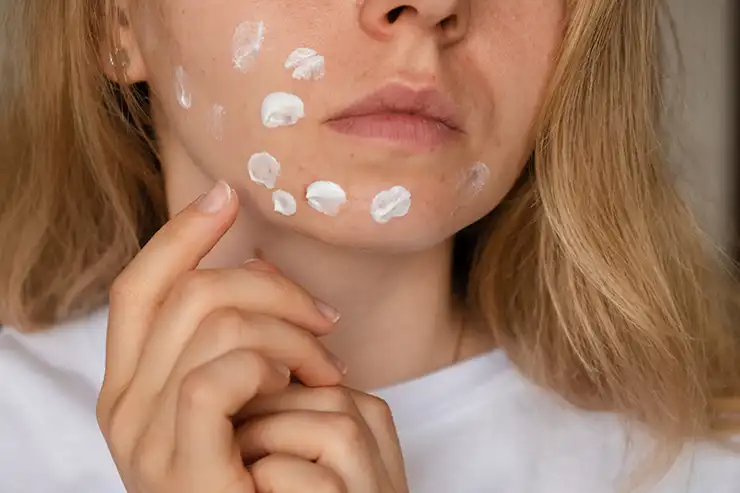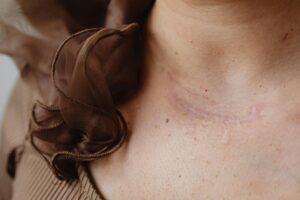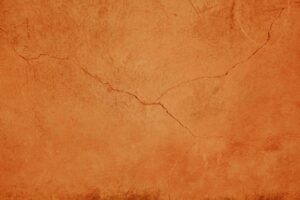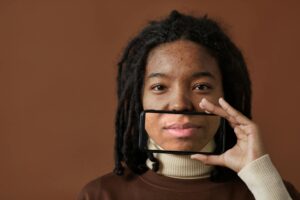Baby acne can be a surprise for new parents. One day, your baby’s skin looks perfectly smooth — and the next, small red or white bumps suddenly appear on their cheeks, forehead, or chin. It’s natural to worry, but here’s the good news: baby acne is completely normal, harmless, and temporary.
Let’s look at what causes it, how to care for your baby’s skin safely, and when it’s time to check with your doctor.
What Is Baby Acne?
Baby acne, also called neonatal acne, is a common skin condition that affects newborns, usually within the first few weeks after birth. It looks similar to teenage acne — small red bumps or whiteheads — but the cause and course are very different.
These tiny spots typically appear on the face but can also show up on the neck, back, or chest. They may become more noticeable when your baby cries or gets warm, but they aren’t painful or itchy. Most importantly, they’re not caused by poor hygiene or allergies.
What Causes Baby Acne?
The exact cause isn’t fully understood, but doctors know a few factors play a role:
-
Maternal hormones: During pregnancy, your hormones pass through the placenta and can overstimulate your baby’s oil glands after birth.
-
Immature skin: A newborn’s skin barrier is still developing and adjusting to the new environment outside the womb.
-
Natural yeast (Malassezia): In some cases, overgrowth of a harmless skin yeast may contribute to inflammation and mild irritation.
Baby acne isn’t a sign of infection or an allergic reaction, and it doesn’t mean your baby will have acne later in life.
How Long Does Baby Acne Last?
Most cases clear up on their own within 2 to 4 weeks. Some may linger a little longer — up to 3 months — especially if your baby’s skin is sensitive.
As tempting as it may be, don’t apply acne creams or try to “treat” it aggressively. The best treatment is time, gentle care, and patience.
Baby Acne vs. Infantile Acne
It’s important to distinguish between two types of acne that can affect babies:
-
Neonatal (baby) acne: Appears in newborns under 6 weeks old, mild, and resolves on its own.
-
Infantile acne: Appears later, around 2–6 months of age, and can involve deeper pimples or small cysts.
Infantile acne can sometimes persist longer and may require pediatric dermatology treatment. If you’re unsure which type your baby has, your pediatrician can confirm easily.
How to Care for a Baby’s Skin
Caring for baby acne doesn’t require any special products — just a gentle, consistent routine:
-
Wash your baby’s face once a day with lukewarm water and a mild, fragrance-free baby cleanser.
-
Pat the skin dry gently with a soft towel — don’t rub.
-
Avoid lotions or oils unless recommended by your pediatrician.
-
Keep your baby’s skin cool and dry; heat and sweat can make bumps more visible.
-
Use soft, breathable fabrics like cotton to reduce friction.
Over-cleaning or scrubbing can make things worse. Your baby’s skin is delicate — gentle care goes a long way.
What Not to Do
A few common mistakes can irritate the skin or slow healing:
-
Don’t use acne treatments meant for adults or teens. Ingredients like salicylic acid, benzoyl peroxide, or retinoids are far too harsh for baby skin.
-
Don’t apply essential oils, home remedies, or any product not approved by your doctor.
-
Avoid thick lotions or ointments that can clog pores.
-
Don’t try to pop or squeeze pimples — it can cause irritation or infection.
Your baby’s skin knows how to heal itself — it just needs time and protection.
When to See a Doctor
Baby acne rarely requires medical care, but you should talk to your pediatrician if:
-
The acne lasts longer than 3 months.
-
The bumps are large, deep, or filled with pus.
-
The skin looks red, crusted, or painful.
-
The rash spreads quickly or looks different from typical acne.
In these cases, your doctor can rule out other skin conditions like eczema, milia, or allergic rashes. Occasionally, a mild medicated cream may be prescribed for persistent cases.
FAQs About Baby Acne
What age does baby acne appear?
Usually within the first few weeks after birth and typically fades by 2–3 months.
Can breast milk cause or help baby acne?
There’s no scientific evidence that breast milk causes acne. Some parents find applying a drop can soothe mild irritation, but results vary.
Should I put lotion on baby acne?
Not unless your pediatrician recommends it. Most lotions can clog pores and worsen the bumps.
Is baby acne itchy or painful?
No. Baby acne doesn’t cause discomfort or itching.
Can baby acne leave scars?
No. Baby acne heals completely without scarring once the skin clears.
Can my baby get acne again later?
Yes, mild flare-ups can happen as hormones fluctuate, but they’re harmless and temporary.





